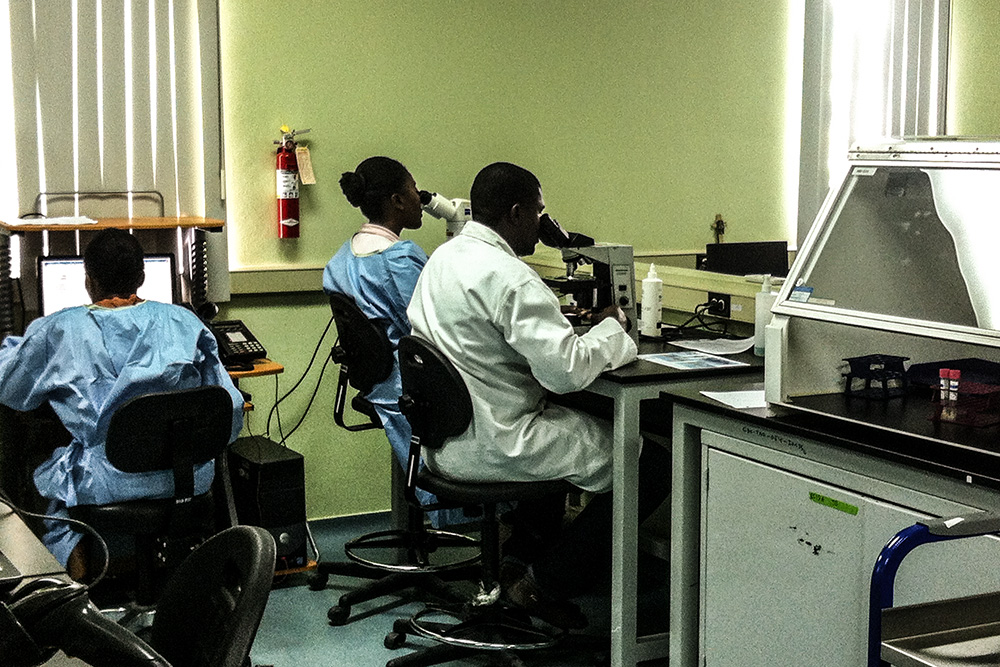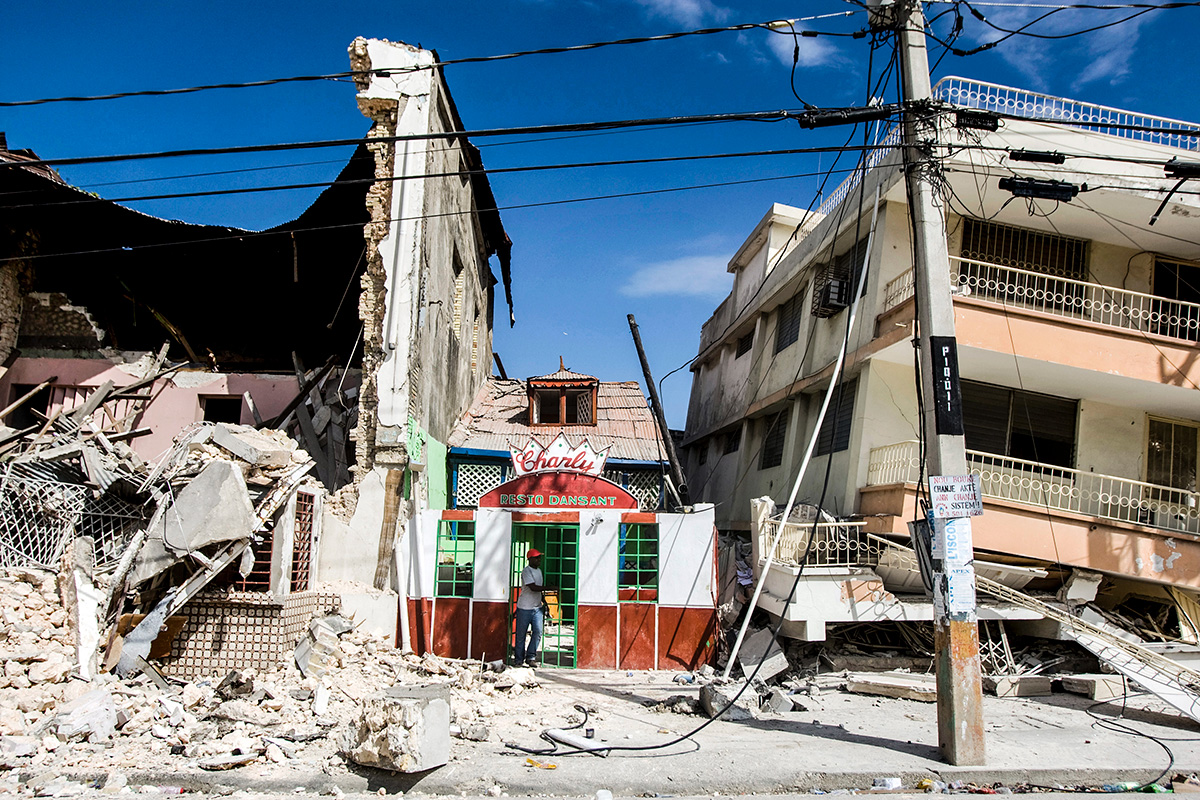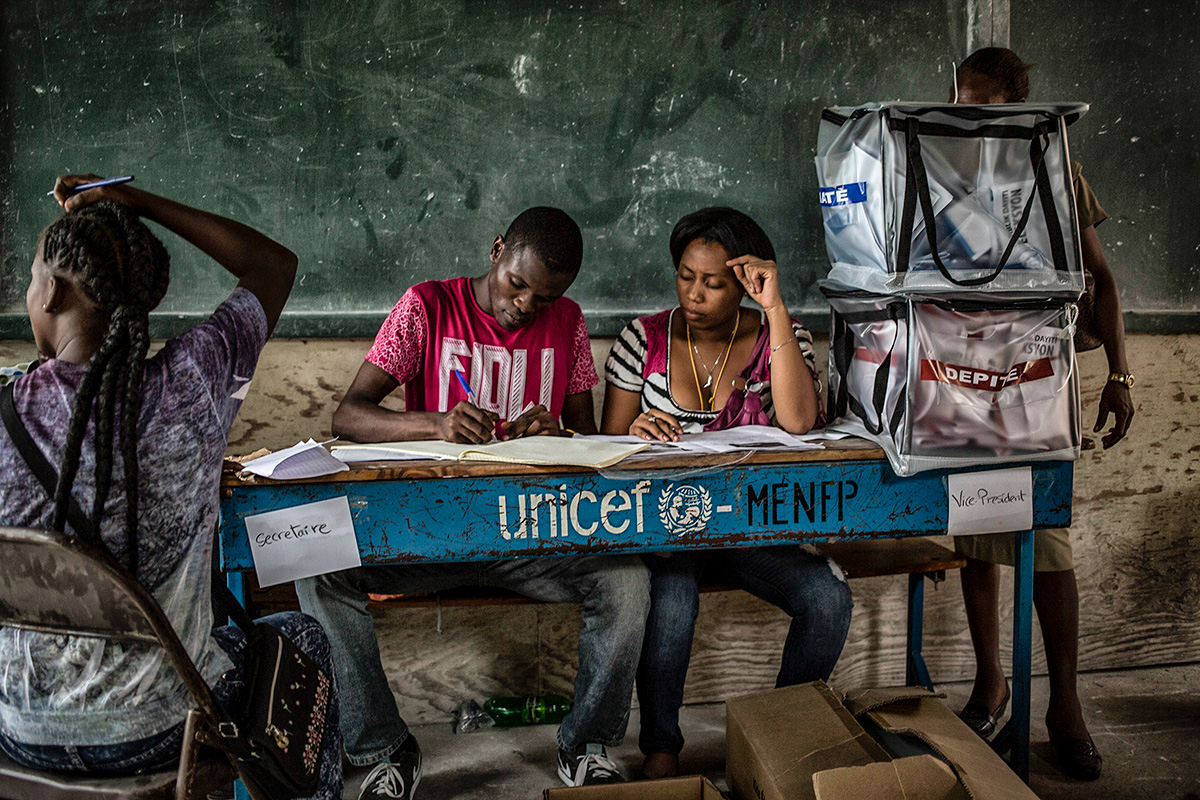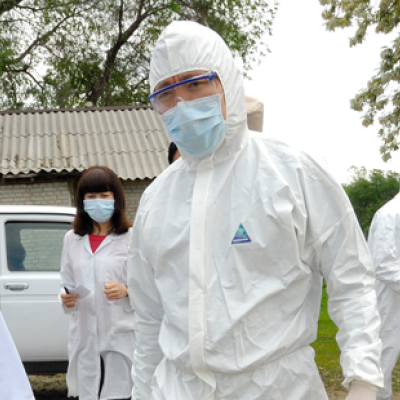For over a century, Haiti has had an ambitious – but struggling – laboratory sector. Can the new national policy, supported by an EU-funded project, be the change needed?
This guest post was originally published on DG DEVCO’s website.
Since June 2018, Haiti officially holds its first National Laboratory Policy (NLP). A big step for the health sector, particularly for its laboratory part, which has been neglected for far too long.
The NLP is the result of a great collaboration between the Ministry of Public Health and Population and its technical and financial partners, in particular the European Union and the Mérieux Foundation, which provided financial support to carry out field evaluations and technical consultations.
Availability and access to quality laboratory services are still major challenges for Haiti. Photo © SPHIP
This policy reassembles the main strategies needed for the development of the laboratory sector, but the development process was long and complex and required the deployment of an advocacy strategy.
Key role
The Haitian laboratory sector appeared at the beginning of the 20th century, but like the country's health system, it’s had its ups and downs. Availability and access to quality laboratory services are still major challenges for the country.
According to Dr Jacques Boncy, the Director of the National Public Health Laboratory, “despite significant efforts coming mainly from the private sector, what characterises the laboratory is a lack of chronic investment, a sawtooth evolution and a certain level of disorganisation”.
The weakness of this sector has serious consequences for the health system. It exposes patients to poor or ineffective treatments, inadequate public health decisions, loss of financial resources, and ultimately a decrease in the credibility of the health system.
The laboratory, however, plays a key role in epidemiological surveillance, prevention and disease control programs. One of the major roles of the laboratory is the provision of reliable information necessary for the care of patients, surveillance, detection and response to epidemics.
Work underway
The Ministry of Public Health and Population (MSPP) has made a lot of efforts to address this situation.
In 2006, it created the National Public Health Laboratory under the supervision of the Department of Epidemiology Laboratory and Research.
Thanks to the Laboratory, the sector has begun to structure and reinforce itself by organising multiple training sessions for public and private laboratory technicians, strengthening the capacity within the National Laboratory Network.
The Laboratory coordinates the activities of the various medical laboratories within the ten health departments via the Departmental Medical Technologist.
The massive earthquake, which devestated Haiti on 12 January 2010, put a halt to the implementation of the Strategic Plan 2010-2015. Photo © Marco Dormino/UN
A five-year Strategic Plan for the Laboratory (2010-2015) was developed to guide the Laboratory’s actions, but could not be implemented due to lack of funding from donors and – more importantly – because of the earthquake of 12 January 2010, which devastated the country.
The Strategic Plan could also not be included in a long-term vision for the development of the sector due to the absence of a national laboratory policy.
SPHaïtiLab
So, in 2014, the Ministry of Health came up with a new project called SPHaïtiLab, elaborated with the Mérieux Foundation and co-financed by the European Union.
One of its main objectives has been to equip Haiti with a National Laboratory Policy.
This essential tool explains the vision of the Ministry of Public Health and Population that wishes to have an efficient laboratory system in order to provide universal access to quality health services.
|
The NLP The National Laboratory Policy outlines the main areas for the development of the laboratory sector, namely:
|
The Minister of Public Health, Dr. Marie Greta Roy Clément, pointed out that the data from the laboratories are the eyes of the ministry.
“Developing the laboratory sector is synonymous with ensuring the health system's resilience,” she said at the launch of the Policy.
“Developing the laboratory sector is synonymous with ensuring the health system's resilience”
NLP development process
The policy development process began with an in-depth analysis of 30 laboratories across the country: three per department.
Afterwards, the five-year Strategic Plan for 2010-2015 was evaluated by a consultant using a participatory approach that included interviews with implementing technical and financial partners.
In view of the recommendations and the results of the Strengths-Weaknesses-Opportunities-Threats analysis of these two evaluations, several strategies were formulated for the National Laboratory Policy.
This was followed by two workshops organised with the participation of various stakeholders from the laboratory sector to develop the policy document. The stakeholders included the Ministry of Public Health and Population, representatives of public and private laboratories, bilateral partners, NGOs and other partners.
Before the document was submitted to the Ministry of Public Health and Population’s High Authority for approval, it was revised by a select committee.
Throughout the process, the project team conducted rigorous planning to ensure that all stakeholders were involved and could contribute to the various activities.
The changing political context in Haiti was also taken into account.
Elections in Haiti: Since 2015, Haiti has had three Health Ministers, so the project team had to ensure the SPHaïtiLab had full support of each of them. Photo © Logan Abassi/UN
Since 2015, the Ministry of Health has had three Health Ministers, so the project team had to present SPHaïtiLab to the authorities each time to ensure their support. This was essential for the success of the project.
The road ahead
The project team benefited from the support of the GFA Consulting Group, which facilitated training on Advocacy and Knowledge Application (KT) in May 2017.
This training was a way to accompany the national focal points of the project in the process of advocacy for the adoption of the National Laboratory Policy in Haiti.
The participants were able to analyse together the different stages of the implementation of an effective advocacy plan. They learned the importance of thoroughly analysing the situation and listening to decision makers, so they could provide appropriate solutions.
Today, despite the various obstacles encountered, the National Laboratory Policy is adopted, and will be implemented throughout the country thanks to two essential tools: the 2019-2023 Five-Year Strategic Plan and the 2019-2020 Operational Plan, which are currently being finalised.
The engagement and advocacy with the Ministry of Public Health and Population, the private sector (Partnership-Public-Private strategy) and the international donors on the need to finance the activities planned in the Strategic Plan 2019/2023 remains the main challenge.
✎
Contact us if you would like to contribute your own Voices & Views article.







Log in with your EU Login account to post or comment on the platform.